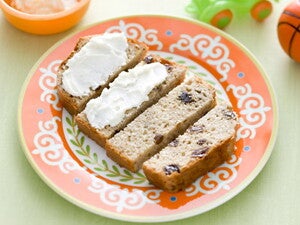
Understanding and Managing a Fussy Eater
Are you facing challenges with a picky eater? Wanting some tips for fussy eaters? You're not alone. Many parents encounter difficulties when it comes to their child's eating habits. By understanding the reasons behind fussy eating and learning effective management techniques, you can make mealtimes more enjoyable for everyone.
About fussy eating
Fussy eating is a common issue among toddlers and children, characterised by selective eating or refusal to consume certain foods. Identifying the causes, signs, and developmental stages linked to fussy eating can assist parents in navigating this phase more smoothly.
There are several common reasons behind picky eating in young children. One primary cause is their natural tendency to assert independence. As children explore their preferences and autonomy, they may resist certain foods.
Sensory sensitivity may also play a role. Some children have heightened sensitivity to textures, tastes, or smells, making them hesitant to try new or unfamiliar foods. This sensitivity can stem from their developmental stage or individual preferences.
Signs of fussy eating vary from child to child. Some may refuse specific food groups, while others stick to a limited range of preferred foods. They might also get easily distracted during meals or show strong preferences for particular textures or colours.
Developmental stages can influence fussy eating. For instance, during toddlerhood, children might experience neophobia—the fear of trying new foods. This is a normal part of development, and most children outgrow it with time.
Understanding these factors can help parents approach mealtimes with patience and empathy. Providing a supportive and positive mealtime environment encourages healthy eating habits and exposes children to a variety of nutritious foods.
Watch to learn ways to make sure your fussy eater is getting enough variety in their diet.
Strategies to encourage healthy eating habits
Managing a fussy eater can be challenging, but implementing effective strategies can foster a positive mealtime environment and promote healthy eating habits.
Create a positive mealtime atmosphere. Make mealtimes enjoyable and stress-free by avoiding pressure on your child to eat certain foods or finish their plate. Engage in pleasant conversations and consider playing soft background music to create a relaxed setting.
Offer a variety of foods and textures. Offering healthy foods for a picky eater isn’t always straight forward. Children may be more inclined to try new foods when presented in different ways. Include a mix of fruits, vegetables, whole grains, and proteins in their meals. Experiment with various cooking methods such as baking, steaming, or grilling to enhance flavours and textures.
Encourage self-feeding and food exploration. Let your child use age-appropriate utensils and dishes to feed themselves. Provide finger foods they can easily pick up and explore, fostering independence and control over their eating habits.
Remember, it may take time for your child to develop a liking for certain foods. Be patient and continue offering a variety of nutritious options. Be a role model by enjoying a balanced diet yourself. By applying these strategies, you can help your fussy eater cultivate healthy eating habits that will benefit them in the long run.
Practical tips for parents
Effective meal planning and preparation are key to providing healthy food options for a picky eater so they get the nutrition they need. Here are some practical tips to make mealtimes more enjoyable and less stressful.
Meal planning and preparation tips:
- Involve your child in meal planning by allowing them to choose a few healthy options from each food group. This gives them a sense of control and may increase their willingness to try new foods.
- Get your picky eater involved in preparing and cooking where possible. Choose toddler-safe preparations like pulling apart a lettuce, mashing cooked potato, or placing the ingredients on your home-made pizzas. It’s also a great opportunity to talk to your little one about the colours, textures and aromas they may be experiencing.
- Offer a variety of foods at each meal, including fruits, vegetables, whole grains, and lean proteins. This ensures a balanced diet and introduces different flavours and textures.
- Experiment with different cooking methods and recipes to keep meals interesting. Try baking, grilling, or steaming instead of always frying.
- Remove distractions like TV, phones and any other media or games.
Dealing with mealtime tantrums and refusals:
- Stay calm and patient during mealtimes. Maintain a positive and relaxed atmosphere to help avoid pressuring your child to eat.
- Establish a routine for mealtimes and adhere to it as much as possible. This can help your child develop a sense of structure and predictability around meals.
- Offer small portions of new or disliked foods alongside familiar favourites. Encourage your child to taste new food, but don't force them to finish it.
- Set a reasonable time limit for dinner (around 20 minutes), especially if they’re being particularly picky. If they don’t finish by then, remove what’s left without any fuss.
When to seek professional help:
- If your child's picky eating results in weight loss, affects their overall growth and development, or you’re concerned they might have nutritional deficiencies, you should talk to your healthcare professional.
- A dietitian or paediatrician can provide specialised advice and guidance on foods for fussy eaters, tailored to your child's specific needs.
Remember, every child is different, and it's normal for them to go through phases of picky eating. With patience, consistency, and the right strategies, you can help your child develop a healthy relationship with food.
Frequently asked questions about fussy eaters
What is a fussy eater?
A fussy eater is a term used to describe a child who is selective or hesitant about trying new foods or has a limited range of preferred foods. They may exhibit strong food preferences, refuse certain textures or flavours, or show resistance to eating a variety of foods.
Is fussy eating normal?
Yes, having a picky eater is relatively common, especially during the toddler and preschool years. It is a normal part of their development as they explore their food preferences and assert their independence. However, if it significantly affects their growth or causes them distress, it is advisable to consult with a healthcare professional for tailored advice.
At what age do children stop being fussy eaters?
The age at which children stop being fussy eaters can vary. For some, it may improve as they grow older and become more open to trying new foods. However, every child is different, and some may continue to exhibit selective eating habits into adolescence or even adulthood. Patience, persistence, positive role modelling, and offering a variety of nutritious options can help encourage healthy eating habits over time.
Sources:
Raising Children Website. Accessed at https://raisingchildren.net.au/toddlers/nutrition-fitness/common-concerns/fussy-eating
- Australian Government Department of Health and Aged Care Website. Accessed at https://www1.health.gov.au/internet/publications/publishing.nsf/Content/gug-director-toc~gug-familyfoods~gug-familyfoods-variety~gug-familyfoods-variety-fussy






